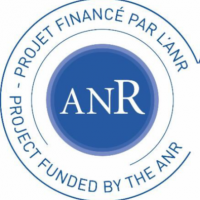The unique mechanical properties of bulk metallic glasses (BMGs) have led to their potential for tribological applications, especially in the field of microsystems and miniature devices. Nonetheless, CuZr-based BMGs exhibit scattered tribological behaviours, sometimes mediocre and sometimes excellent, and especially unpredictable or even often contradictory depending on the contact conditions. Thus, a better understanding of the “composition / friction conditions / tribological behaviour” couplings is necessary in order to make the tribological performance of BMGs more reliable.
The goal of TriboRAMA project is to significantly improve the tribological understanding, performance and reliability of CuZr-based BMGs. We propose to tune CuZr-based BMGs composition, microstructure, and surface for controlling their tribological properties. Ultimately, the project is expected to develop BMGs achieving reliable tribological behavior in the field of microsystems, where BMGs are highly expected due to their exceptional mechanical properties compared with traditionally used materials.
To reach the above-mentioned objective, we propose 2 distinctive development routes allowing to tune the BMG tribological behavior:
· The volume functionalization of BMGs by means of structure modifications of the amorphous matrix.
· The surface functionalization of BMGs by grafting of organic molecules to create a protective 3rd body.
In both cases, it is suggested to add a new function to BMGs, of a tribological order.

